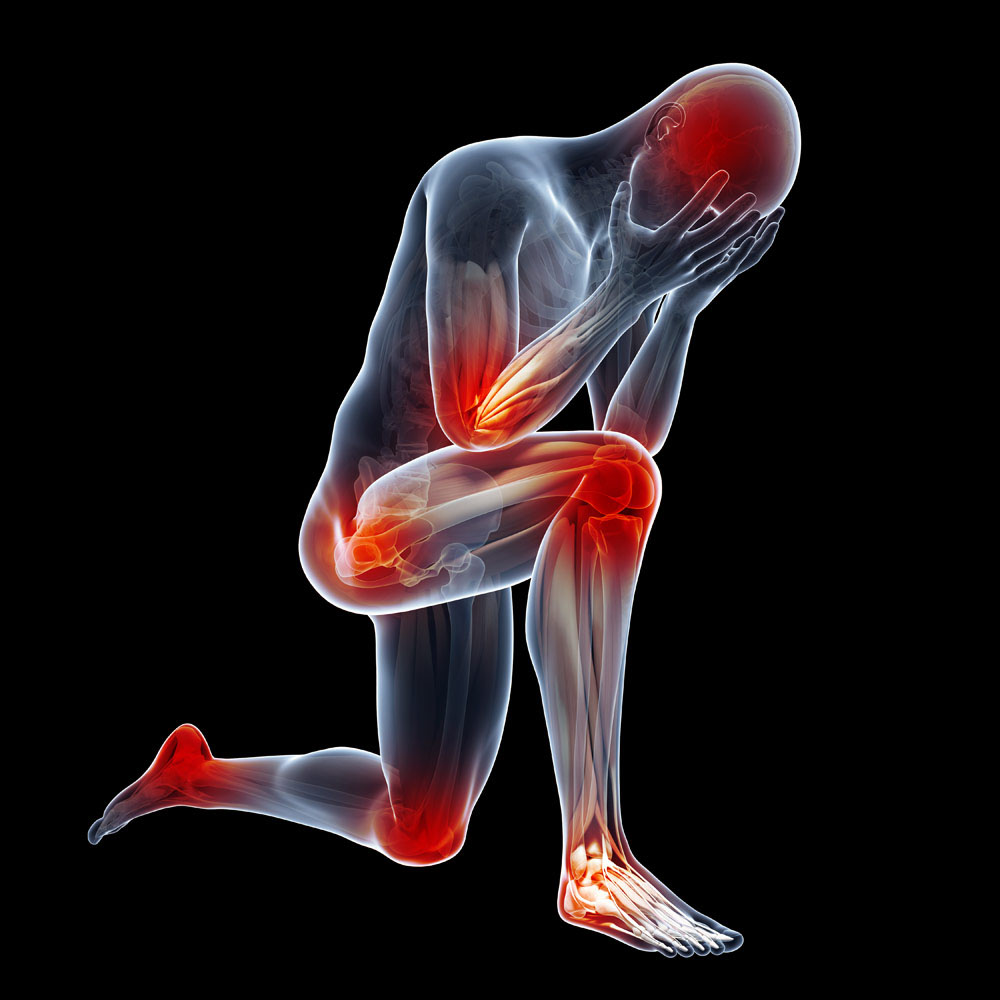Joint Pain Treatment
सांधेदुखी ही जगभरातल्या लोकांना भेडसावणारी समस्या असल्याने याकडे अत्यंत गांभीर्यानं पाहिलं जातं. एकूण लोकसंख्येच्या १५ टक्क्यांहून अधिक लोक या समस्येमुळे त्रस्त आहेत.
मुख्यतः सांध्यांना सूज येणं, सांध्यांमध्ये वेदना असणं, सांध्यांमध्ये कडकपणा येणं, सांध्यांची हालचाल मंदावणं अथवा त्यात अडथळा येणं, सांध्यांमध्ये विकृती होणं, सांधे वाकडे होणं ही लक्षणं कमी-अधिक प्रमाणात आढळतात. काहीवेळा ही लक्षणं तात्पुरत्या स्वरूपात तर काही लक्षणं ही कायमस्वरूपाची असतात. या लक्षणांमुळे दैनंदिन हालचालींमध्ये तसेच चालणं, उठणं, बसणं, चढ-उतार, वस्तू उचलणं आणि ठेवणं यावरही परिणाम होतो. काही संधीवाताचा परिणाम हा हृदय, किडनी, डोळे आणि फुप्फुसांवरही झाल्याचं दिसून येतं.
Symptoms Of Joint Problems:
Pain – Pain may be at the joint or in parts of the body associated with the joint.
Swelling – Swelling is often a sign of inflammation.
Stiffness – Stiffness is caused by the body to prevent excessive movement in order to protect the damaged part.
Limited range of movement – when a muscle or tendon is affected, it is not possible to move the joint through the full range that is normally possible.
Tenderness – Tenderness is pain on touching the part and is a sign of inflammation.
Weakness – Weakness of the part of the body associated with the joint is often seen.
Inability to move the part – When a tendon or muscle is affected, the person is not able to move the affected part. Movement may also be restricted by pain.
Fever – Joint problems can also be a part of a systemic issue and a disease that not only affects the joint but also other organs in the body Ex. Ankylosing Spondylitis.

What Is the Theory Behind Ayurvedic Joint Pain Treatment?
As per the Ayurvedic theories, Joint pain is a result of excess Amavata. Vitiate Doshas and Amavata are caused due to unhealthy food habits. This excess of Amavata in the body causes stiffness of joints in the morning.
These problems can be eliminated by various . Ayurveda boosts the functioning of the liver to increase the metabolic rate of the body. This leads to the improved Detoxification process whereby all the toxins are flushed out of the body. Ayurvedic massage therapies also improve blood circulation and consequently reduce the inflammation symptoms such as Pain and Swelling.
Ayurvedic Treatment For Joint Pain & Problems
The Ayurvedic approach to treatment is very individualised. However the approach to treatment of patients suffering from Inflammatory conditions differs significantly from that of Degenerative conditions.
It is seen that chronic joint problems tend to be similar after a long time. Ie, if inflammatory conditions last long, they lead to degeneration and degeneration over a long period of time leads to inflammation. So patients who suffer from either of these conditions for a long period of time will have combination of inflammation and degeneration which have to be addressed simultaneously.
Ayurvedic Treatment Of Inflammatory Joint Conditions
According to Ayurveda, the initial stages of Inflammatory conditions are considered to be associated with toxicity and are dealt with by detoxification. Detoxification in Ayurveda is three prong. For mild level of toxicity Ayurveda advocates very light food with warm fluids and rest. For moderate level of toxicity, Ayurveda advocates administration of herbal decoctions that help the liver to metabolise and eliminate the toxins. For toxicity of a high degree, Ayurveda advocates Panchakarma (The five methods of Cellular Bio-purification). Ayurveda also advocates a number of herbs that have a very effective anti-inflammatory action, the main one is Guggulu and it is one of the most important herbs used in Ayurveda for the treatment of Inflammatory conditions. Ayurveda also employs a number of therapies like Dhanyamladhara (Pouring of warm fermented liquid), Abhyanga ( Oil massage), Podikkizhi (Herbal powder massage), Ilakkaizhi (Herbal leaf massage) and a large variety of Vasthis (Enemas) which are very effective for inflammatory conditions. Course of Vasthi as a continuous process numbering 8, 15 and 30 are called Yoga Vasthi, Kala Vasthi and Karma Vasthi respectively and are very effective in reducing very severe inflammation and restoring normalcy. It is seen to be the main tool used in bringing down the inflammatory markers like ESR, CRP etc significantly.
Ayurveda Approach To Degenerative Joint Conditions
Ayurveda also is very effective in addressing degenerative skeleton-muscular conditions. Ayurveda recommends a holistic approach to treatment comprising of diet, lifestyle, herbal medicines and therapies for addressing degenerative joint conditions. There are many medicines in Ayurveda that help to strengthen the joints and reduce the degeneration. Ayurvedic physicians can choose ideal combinations for each individual. The therapies like Tailadhara (pouring of medicated oils), Nhavarakkizhi (massage with bolus of rice boiled in medicated milk) and Ksheera vasthi are among the most effective therapies for preventing degeneration and to strengthening the joints. It is very important to note that if there is associated inflammation, the anti-degenerative therapy is advised only after the inflammation is brought under control.
